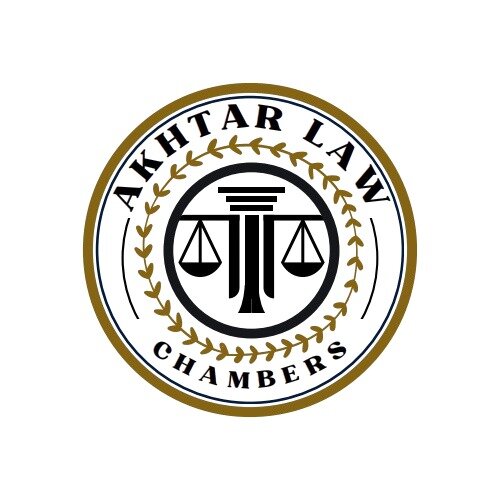Best Collaborative Law Lawyers in Rahim Yar Khan
Share your needs with us, get contacted by law firms.
Free. Takes 2 min.
Free Guide to Hiring a Family Lawyer
List of the best lawyers in Rahim Yar Khan, Pakistan
About Collaborative Law in Rahim Yar Khan, Pakistan
Collaborative Law in Rahim Yar Khan, like in other parts of Pakistan, is a legal approach designed to help parties resolve disputes without going through the adversarial court system. It emphasizes cooperation and problem-solving, allowing both parties to work towards a mutually satisfactory resolution with the assistance of their respective lawyers. This method is gaining popularity in Rahim Yar Khan for its ability to maintain relationships and privacy, reduce conflict, and save time and resources.
Why You May Need a Lawyer
There are several situations where seeking legal help under Collaborative Law might be necessary:
1. Divorce or Separation: Collaborative Law can offer a less confrontational way to settle disputes related to divorce, custody, and property division.
2. Family Disputes: For family-related conflicts, Collaborative Law allows parties to maintain amicable relationships post-resolution.
3. Business Conflicts: Business partners can use Collaborative Law to resolve disputes over contracts, operations, and finances while preserving professional relationships.
4. Estate Planning Disputes: It can also be employed in matters concerning estates, ensuring everyone's voice is heard without damaging familial ties.
Local Laws Overview
In Rahim Yar Khan, like the broader Punjab region and Pakistan, the practice of Collaborative Law is guided by both legal codes and cultural norms. Key aspects include:
- The process is voluntary and requires both parties' consent.
- Collaborative agreements focus on private settlement and avoid court intervention.
- Lawyers involved must focus on negotiation and resolution rather than litigation, fostering a client-centered approach.
- Neutral experts may be involved as needed to assist in providing clarity and professional opinions.
Frequently Asked Questions
What is Collaborative Law?
Collaborative Law is a legal process aimed at resolving disputes through cooperation and negotiation, without going to court.
Is Collaborative Law legally recognized in Rahim Yar Khan?
Yes, it is recognized and utilized as an alternative legal process to litigation, focusing on mutual agreement.
How does Collaborative Law differ from traditional litigation?
Unlike litigation, Collaborative Law is non-adversarial and focuses on mutual problem-solving and agreement.
Can Collaborative Law be used for all types of disputes?
It is best suited for family law and business disputes where parties seek to maintain relationships during and after resolution.
What happens if an agreement cannot be reached?
If the parties cannot reach an agreement, they may opt for mediation, arbitration, or eventually traditional litigation.
Do both parties need a lawyer in Collaborative Law?
Yes, each party should have a collaborative lawyer to guide them through the process and advocate for their interests.
Are the discussions and negotiations confidential?
Yes, all discussions and negotiations are confidential, promoting openness and honesty without the fear of public disclosure.
Is Collaborative Law time-efficient?
It can be more time-efficient than litigation due to its streamlined and cooperative nature.
Will Collaborative Law be less expensive than going to court?
Often, it is less expensive than court proceedings, though costs can vary depending on case complexity.
What role do experts play in Collaborative Law?
Neutral experts provide insight and advice, helping to ensure informed, balanced decisions are made by both parties.
Additional Resources
Those seeking more information on Collaborative Law in Rahim Yar Khan can consider the following resources:
- The local bar association for referrals and resources specific to Collaborative Law.
- Punjab's legal aid bodies offering advice on family and business law resolutions.
- Non-governmental organizations focusing on alternative dispute resolution methods.
Next Steps
If you find yourself in need of legal assistance under Collaborative Law in Rahim Yar Khan, here are some steps to consider:
1. Consult with a collaborative lawyer to understand the specifics of your case and collaborative process.
2. Discuss with the involved party about opting for a collaborative approach.
3. Gather relevant documents and information that might be required in negotiations.
4. Choose a lawyer who specializes in Collaborative Law and establish a mutual agreement to proceed collaboratively.
5. Prepare for initial meetings with a focus on openness, flexibility, and willingness to compromise.
Lawzana helps you find the best lawyers and law firms in Rahim Yar Khan through a curated and pre-screened list of qualified legal professionals. Our platform offers rankings and detailed profiles of attorneys and law firms, allowing you to compare based on practice areas, including Collaborative Law, experience, and client feedback.
Each profile includes a description of the firm's areas of practice, client reviews, team members and partners, year of establishment, spoken languages, office locations, contact information, social media presence, and any published articles or resources. Most firms on our platform speak English and are experienced in both local and international legal matters.
Get a quote from top-rated law firms in Rahim Yar Khan, Pakistan — quickly, securely, and without unnecessary hassle.
Disclaimer:
The information provided on this page is for general informational purposes only and does not constitute legal advice. While we strive to ensure the accuracy and relevance of the content, legal information may change over time, and interpretations of the law can vary. You should always consult with a qualified legal professional for advice specific to your situation.
We disclaim all liability for actions taken or not taken based on the content of this page. If you believe any information is incorrect or outdated, please contact us, and we will review and update it where appropriate.








